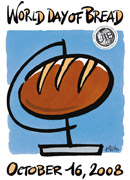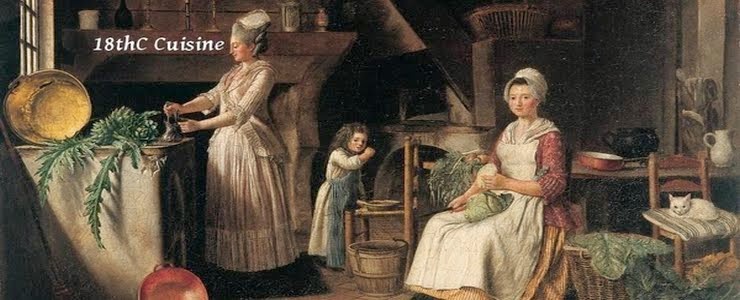Paste for Crackling-crust.
Having provided about two Handfuls of Almonds, which are sufficient for one Pan-pye, let them be scalded, blanch'd, and thrown into fresh Water: Then they are to be wip'd, and pounded in a Mortar, moistening them from time to time, with a little White of an Egg and Orange-flower Water, beaten together, to prevent them from turning to Oil. 'Tis very material, that they be well pounded, and they may also be squeez'd through a Sieve, to take away all the Clods, or Lumps, The Almond-paste being thus prepar'd, must be spread on a Bason or Dish, and dried with Powder-sugar, as an ordinary sort of Paste, till it become very pliable. Afterwards, having set it by for some time, you are to roll out a Piece for the under-crust, to be dried in the Oven upon the Pie-pan; whilst other small Pastry-works are making, with what was par'd off, such as
Petits Choux, Ciphers, Knots and other Devices, that may serve for the Garnishing of your Pie.
Crackling-crust made after another manner.
After the Almonds have been thoroughly pounded and moisten'd, as before, let as much Sugar as Paste, at least, be put into a Copper-pan, and boil'd till it become Feathered: Then throwing in your Almonds, let all be well temper'd and mingled together with the
Spatula, and having set them over the Fire again, keep continually stirring the whole Mass, till your Paste slips of[f] from the bottom and sides of the Pan. Afterwards, it must be laid in a Dish, strew'd with Powder-sugar on the top, and set by, for a while, as the former, in order to make a Pye of it, after the same manner.
In preparing the Paste conformable to either of these Methods, the Pie will certainly become crackling and delicious to the highest Degree: But if you are minded to avoid the trouble, and perhaps the charge of Almonds, very good Pies may also be made according to the following Instructions.
Another Way.
Take one, or two Whites of Eggs, with three or four Spoonfuls of fine Sugar, and as much Flower, if you would only make one Pan-pye: The Sugar being first temper'd with the Whites of the Eggs, and then the Flower, knead all together, till your Paste become pliable, and roll out a very thin Piece; strewing it with fine Sugar: Afterwards, having put it into te Pie-pan, let the Sides be neatly pinch'd, at certain Intervals, and prickt with the point of a Knife, to hinder them from puffing: In the mean while, the remaining part of the Paste is to be roll'd out into Slips of the thickness of a Lace, to compleat the inside of the Pie; which may be made in the form of a Sun, Star,
Malta-cross, Flower-de-luce, Coat of Arms, or the like. At last, it must be gently bak'd in the Oven, and when ready to be brought to Table, the void Spaces are to be fill'd up, with several sorts of Marmelades, or Jellies, according to the Colours, that shall be judg'd most expedient: The same thing ough also to be observ'd, with respect to Pies made of the preceding Pastes. To the latter, may be added a little Orange-flower Water, or some other sweet Water, and if it be requisite to prepare a greater quantity of either sort of Paste, another Piece, of an equal thinness, may be roll'd out for the Lid; which must be cut round, and dried in the Oven, upon a Pie-pan, or Plate, in order to cover the Pie, after it has been ic'd over, if you have no mind to leave it in its natural Colour.
* * * * *The court & country cook, faithfully translated out of French into English by J. K. A. J. Churchill, London, 1702, p. 114-116.New Instructions for Confectioners
 Join me in trying your hand at bread baking, any loaf will do. Can't you just smell that wonderful aroma? I can hear the crackling of the loaf as its crust sets as I pull it out of the oven.
Join me in trying your hand at bread baking, any loaf will do. Can't you just smell that wonderful aroma? I can hear the crackling of the loaf as its crust sets as I pull it out of the oven.